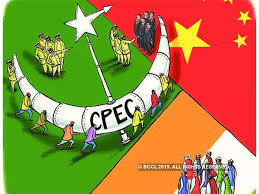Islamabad, Aug 21: According to analysts, Pakistan aims to achieve 60% renewable energy generation by 2030; therefore, the China-Pakistan Economic Corridor (CPEC) presents a crucial chance to diversify the energy mix of the South Asian nation and encourage environmentally conscious investments in the energy sector.
The Sustainable Development Policy Institute (SDPI), a think tank with its headquarters in Islamabad, hosted a seminar on renewable energy on Tuesday. Experts there stated that Pakistan should take advantage of Chinese private sector investments to increase the share of renewable energy, improve energy access, and lessen its reliance on imported fuels.
Speaking at the event, Vaqar Ahmed, joint executive director of the SDPI, pointed out that Pakistan is getting a lot of chances under the CPEC because of China’s large interests in global renewable investments and its position on green investment signals for sustainable development and clean energy. Because the private sector is so significant, Ahmed stated that the Chinese private sector must play a major role in accelerating the adoption of renewable energy in Pakistan.
“Providing green financing at competitive interest rates to sustainable sectors is one of the private sector’s main roles in helping to mitigate environmental issues. It can also provide funding for the creation of renewable energy projects, which would facilitate Pakistan’s energy transformation,” he continued.
The next phase of the CPEC will focus on green and eco-friendly investments to ensure carbon-intensive development, according to Mustafa Hyder Sayed, executive director of the Pakistan-China Institute, a think tank located in Islamabad. The first phase of the CPEC included energy and infrastructure projects as its highlights, and its successful completion will pave the way for these projects.
Sayed stated that Pakistan may benefit from China’s best practices in the field of renewable energy and added that the CPEC, which is Pakistan’s greatest energy investment corridor, is essential to increasing the nation’s investments in renewable energy.
The experts agreed that attention should be paid to the expansion of the renewable industry inside the CPEC special economic zones, citing the necessity of a collaborative working group between China and Pakistan in this regard.
A senior advisor in the energy sector, Noorul Arifeen Zuberi, explained that special economic zones are areas that have been designated throughout Pakistan with additional facilities and lucrative benefits to local and international industrial investors with tax incentives, infrastructure support, and simplified investment procedures.
“Relocation for the Chinese solar panel industry to Pakistan is a lifetime opportunity for Chinese and Pakistani investors due to abundant raw material, cheap labor, special zones, one window
business facility and other benefits,” according to him.
The CPEC, a flagship project of China’s proposed Belt and Road Initiative, was introduced in 2013. It is a corridor that connects Kashgar in northwest China’s Xinjiang Uygur Autonomous Region with Gwadar Port in southwest Pakistan’s Balochistan province. The first phase of the project focuses on energy, transportation, and industrial cooperation.
